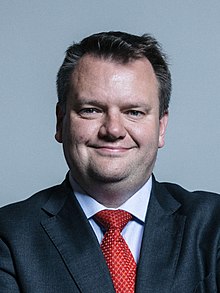Matt Hancock – 2020 Statement on Covid-19
The statement made by Matt Hancock, the Secretary of State for Health and Social Care, in the House of Commons on 1 September 2020.
With your permission, and indeed your encouragement, Mr Speaker, I would like to make a statement on coronavirus. The latest figures demonstrate how much progress we are making in our fight against this invisible killer. There are currently 60 patients in mechanical ventilator beds with coronavirus—that is down from 3,300 at the peak—and the latest daily number for recorded deaths is two. However, although those figures are lower than before, we must remain vigilant. I said in July that a second wave was rolling across Europe and, sadly, we are now seeing an exponential rise in the number of cases in France and Spain—hospitalisations are rising there too. We must do everything in our power to protect against a second wave here in the UK, so I would like to update the House on the work we are doing to that end.
To support the return of education, and to get our economy moving again, it is critical that we all play our part. The first line of defence is, and has always been, social distancing and personal hygiene. We will soon be launching a new campaign reminding people of how they can help to stop the spread of coronavirus: “Hands, face, space and get a test if you have symptoms.” Everyone has a part to play in following the social distancing rules and doing the basics. After all, this is a virus that thrives on social contact. I would like to thank the British public for everything they have done so far, but we must continue and we must maintain our resolve.
The second line of defence is testing and contact tracing. We have now processed over 16 million tests in this country, and we are investing in new testing technologies, including a rapid test for coronavirus and other winter viruses that will help to provide on-the-spot results in under 90 minutes, helping us to break chains of transmission quickly. These tests do not require a trained health professional to operate them, so they can be rolled out in more non-clinical settings. We now have one of the most comprehensive systems of testing in the world, and we want to go much, much further.
Next, we come to contact tracing. NHS Test and Trace is consistently reaching tens of thousands of people who need to isolate each week. As I mentioned in answer to a question earlier, the latest week’s data shows that 84.3% of contacts were reached and asked to self-isolate, where contact details were provided. Since its launch, we have reached over 300,000 people, who may have been unwittingly carrying the virus. Today, we also launch our new system of pay to isolate. We want to support people on low incomes in areas with a high incidence of covid-19 who need to self-isolate and are unable to work from home. Under the scheme, people who test positive for the virus will receive £130 for the 10-day period they have to stay at home. Other contacts, including, for instance, members of their household, who have to self-isolate for 14 days, will be entitled to a payment of £182. We have rolled out the scheme in Blackburn with Darwen, Pendle and Oldham, and we will look to expand it as we see how it operates on the ground.
The third line of defence is targeted local intervention. Over the summer, we have worked hard to integrate our national system with the local response, and the local action that we are taking is working. In Leicester, as the hon. Member for Leicester South (Jonathan Ashworth) knows well, as a local MP, in Luton and in parts of northern England, we have been able to release local interventions, because the case rate has come down. We also now publish significantly more local information, and I put in place a system for building local consensus with all elected officials, including colleagues across this House, wherever possible. Our goal is that local action should be as targeted as possible. This combination of social distancing, test and trace and local action is a system in which we all have a responsibility to act, and this gives us the tools to control the virus while protecting education, the economy and the things we hold dear.
Meanwhile, work on a vaccine continues to progress. The best-case scenario remains a vaccine this year. While no vaccine technology is certain, since the House last met, vaccine trials have gone well. The Oxford vaccine continues to be the world leader, and we have now contracted with six different vaccine providers so that whichever comes off, we can get access in this country. While we give vaccine development all our support, we will insist on safety and efficacy.
I can update the House on changes to legislation that I propose to bring forward in the coming weeks to ensure that a vaccine approved by the Medicines and Healthcare Products Regulatory Agency can be deployed here, whether or not it has a European licence. The MHRA standards are equal to the highest in the world. Furthermore, on the development of the vaccine, which proceeds at pace, I will shortly ask the House to approve a broader range of qualified clinical personnel who can deploy the vaccine in order of clinical priority, as I mentioned in questions. As well as the potential vaccine, we also have a flu vaccination programme—the biggest flu vaccination programme in history—to roll out this year.
Finally, Mr Speaker, in preparation for this winter, we are expanding A&E capacity. We have allocated billions more funding to the NHS. We have retained the Nightingale hospitals to ensure that the NHS is fully prepared, and we published last month updated guidance on the protection of social care. As well as this, last month, figures showed a record number of nurses in the NHS—over 13,000 more than last year—and record numbers of both doctors and nurses going into training. We are doing all we can to prevent a second peak to prepare the NHS for winter and to restore as much of life and the things we love as possible. As schools go back, we must all remain vigilant and throughout the crisis we all have a role to play.
This is a war against an invisible enemy in which we are all on the same side. As we learn more and more about this unprecedented virus, so we constantly seek to improve our response to protect the health of the nation and the things we hold dear. I commend this statement to the House.


